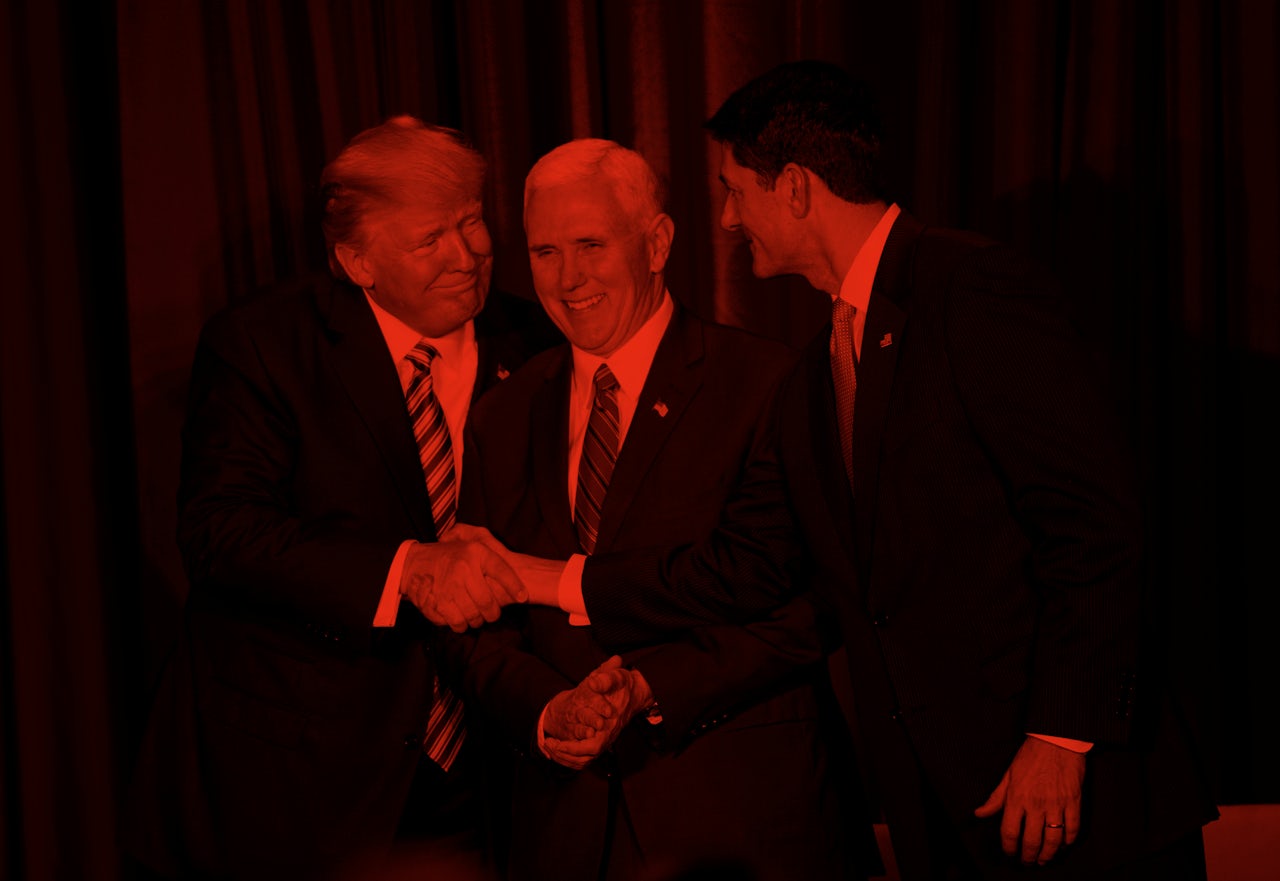The disastrous measures plotted and implemented by the Republican-led forces of our government since Trump took office appear to hold no other value than cruelty. This is not necessarily surprising. At its core, the Republican ideal is a cold vision of a population composed of individuals fending for themselves with no protections against being exploited. This view has successfully masked itself behind lofty philosophical ideas like “individual responsibility.”
That term, used by Vice President Mike Pence during last month’s Conservative Political Action Committee conference in reference to the Republicans’ health care law, is a hallmark of conservative thought. It allows Republicans to shirk responsibility for social ills, like the long-lasting effects of America’s racist history on minorities, or the debilitating cycle of poverty that fuels income inequality. In the first weeks of Trump’s presidency, Republicans in the House axed regulations with a reckless abandon that seemed like a parody of such hard-line conservatism. What sort of deranged society would actively allow its water to be poisoned by corporations?
What America is currently living through is the realization of a small group of zealots’ collective dream: to make America a white nation run by business interests. Trump’s regime is led by a small coterie of men who want to make their amorphous ethnic and economic ideology a reality. They also happen to know very little about how to actually lead. This will likely result in political chaos as the dangerous beliefs of the ideologues in power brush up against the actual complexities of running the country.
At CPAC this year, Steve Bannon, the senior advisor to the president, offered up virtually no specifics on how the party will govern, and once again called the press the “opposition party” in order to cast Trump’s presidency as a battle for the very heart of America. At the end of his speech, he said: “If they think they are going to take this country back without a fight” — referring to the half of the country opposed to Trump — “they’re mistaken.” This was great campaigning but incredibly dumb leadership. No matter how hard they try, Republicans can’t simply make the half of the country they disagree with disappear. (They can, as they are wont to do, gerrymander, but even that is being met with some judicial resistance as of late.)
Even when it comes to listening to the people whom they depend on for their jobs, Republicans have seemed unconcerned with the actual task of governing since Trump took office. Fearing protests of the very nature that they encouraged during Obama’s presidency, Republicans like Texas Rep. Louie Gohmert and Florida Rep. Matt Gaetz skipped out on town hall meetings in their home districts. Some Republicans, like House Speaker Paul Ryan, skipped town halls in favor of holding meetings with donors instead.
GOP Rep. Chaffetz: Americans may need to choose between "new iphone... they just love" and investing in health care https://t.co/5Hxwn2uOl5
— New Day (@NewDay) March 7, 2017
They were hiding because of how unpopular their proposed health care law is. Devoid of any consideration for actual people, the Republican health care plan — dubbed the American Health Care Act — dismantles many of the pieces of the Affordable Care Act that ensure coverage for people who can’t afford it. The twist is that the Republican version of the ACA doesn’t involve an outright gutting of the law, but making major changes to the pieces that actually help people. For example, instead of the mandate that requires coverage for every adult American, which worked in concert with rules against rate hikes for people with pre-existing conditions, Republicans will allow insurance companies to charge up to 30 percent more for coverage for anyone with gaps in their insurance. In other words, they are proposing a harsher mandate enforced by the markets. When pressed on what this means for low-income Americans, Utah Rep. Jason Chaffetz suggested that poor people should “make sacrifices.”
Chaffetz wasn’t the only Republican to put foot in mouth. In a health care town hall hosted by CNN, Paul Ryan lied outright to the audience. He claimed that one of America’s largest insurers, Aetna, was leaving the Obamacare exchanges because it was losing money. The reason Aetna withdrew from the Obamacare exchanges was over a dispute with the government about a merger proposal between Aetna and Humana, a deal that would have been disastrous for consumers. Ryan’s claim that Obamacare is in a “death spiral” is also complete fiction.
Ryan’s deal was decried by many on the right for not going far enough. The conservative group Heritage Action For America accused the Republican bill of failing to move past the “progressive promise” of Obamacare — that affordable health care should be available to low-income Americans. The popular alt-right publication Breitbart decried the bill’s timidness and called it Obamacare 2.0. The arguments in these cases weren’t over whether or not the bill will work — they plan on pushing it through without analysis of the CBO — but with how well it fits into a conservative agenda.
What we’re seeing from Republicans is the repackaging of their long-held contempt for the disenfranchised as the true path to liberty. It is difficult to imagine this ideology yielding anything but deeper levels of inequality, a radically unprepared workforce, increased addiction rates, and fewer insured people. The only group for whom this could possibly be a desirable outcome are Republicans, who have perfected the art of preying on discontent.
